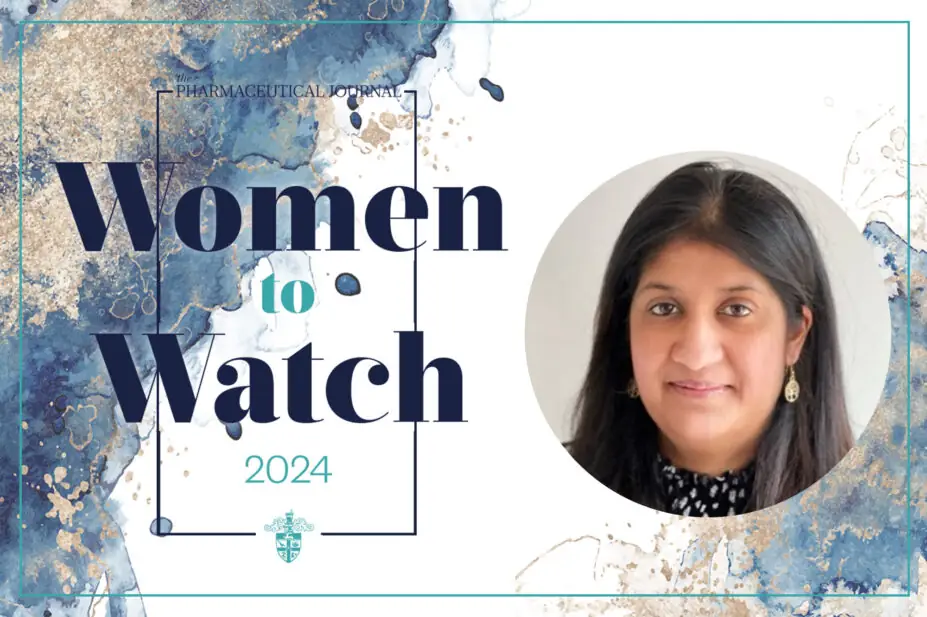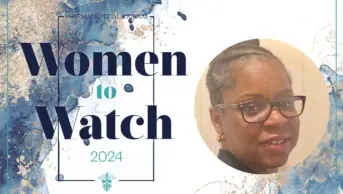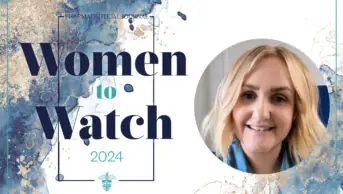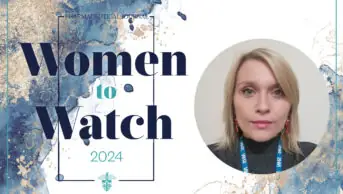
The Pharmaceutical Journal/Rakhi Aggarwal
At her recent leaving do, Rakhi Aggarwal was moved to tears as those in the packed room were told to stand up if she had helped them at work and everyone rose from their seats. She is clearly a people person, but she had not realised until then how much of an impact she made.
Aggarwal has a dual role as primary care lead for medicines use and safety at the NHS Specialist Pharmacy Service and the new job of head of medicines optimisation at Staffordshire and Stoke-on-Trent Integrated Care Board (ICB). Her now ex-colleagues at NHS Birmingham and Solihull will certainly have been sad to see her leave, given the tremendous impact she has had as a senior prescribing adviser.
It is in antimicrobial stewardship, in particular, where Aggarwal has made significant inroads. She has a knack for bringing people together from the national perspective, universities, city councils, hospitals, community pharmacies and primary care. She facilitates the Birmingham Antibiotic Advisory Group and she is also a member of the Royal Pharmaceutical Society Antimicrobial Expert Advisory Group.
Her work has included spearheading outreach projects in deprived communities and schools and running antibiotic amnesty campaigns. For example, from 69 participating pharmacies from within the Birmingham and Solihull ICB in 2023, some 116 full antibiotic packs and 256 partial packs were returned for proper disposal.
Aggarwal realised early in her career, while working in primary care, that you could have more impact working at scale. “Systems level working is something I’m really passionate about. I feel I’m quite good at getting things done by meeting with people and talking and building relationships. It moves things forward more quickly,” she says.
Shaking someone’s hand or smiling at them across the table has a real impact. The bottom line is everyone wants the same outcome for patients
Her goal is always to get to the desired outcome. Having grown up in Birmingham, West Midlands, she realised that the pressure for a child to have antibiotics was, sometimes, coming from older adults in the family. Also, GPs confirmed to her that it could be very difficult to navigate those dynamics. Language barriers seemed to be essential for some groups.
“Because I had good contacts, I was able to reach out to people, like a nurse from one of the local hospitals and colleagues I work with, who speak different languages and record some really simple videos, a few seconds, saying why it was important to complete antibiotic courses or not to ask for antibiotics,” she explains. The practices then put them on their social media and on the screens in their waiting rooms. It worked so well that a similar approach was adopted for hypertension.
Aggarwal’s efforts have led to prescribing data in Birmingham falling consistently below the national median average for antibiotic volume, broad-spectrum antibiotics and use of trimethoprim for lower urinary tract infection. Her ICB achieved the best result for the Midlands in the number of GP practices that had completed the Royal College of General Practice’s ‘TARGET antibiotics toolkit’ training.
“I always advise younger pharmacists not to be scared to speak to people. Shaking someone’s hand or smiling at them across the table has a real impact. The bottom line is everyone wants the same outcome for patients,” she says.
Our judges point to Aggarwal’s “measurable impact” in her work across diverse teams and sectors, but also her ability to inspire and mentor others and help them “break through glass ceilings”.
Her role for the NHS Specialist Pharmacy Service, which she has been doing for just over one year, has pushed her out of her comfort zone. Here, her work includes speaking in podcasts and webinars to help upskill other pharmacists. She is particularly proud of the podcasts supporting the Pharmacy First service.
In her new role in medicines optimisation in Staffordshire, she hopes to be able to bring some stability to the team. It will include some projects around antimicrobial resistance, as well as other portfolios of work. She says she is never afraid of a challenge.
At home, she takes her mind off work by playing chess or reading with her young children. But she admits that it can be tempting to make some more phone calls once they have gone in bed.
In 2023, Aggarwal had to decommission a team after a service was acquired from another ICB. By the end of the process, she had managed to turn everyone around and get staff new roles or even promotions. “I spent the time doing their applications with them and interview preparation. You have to do the hard thing sometimes, but it’s important to remember there are people involved,” she says.
This kindness she learnt from her own line manager a few years ago, after she had moved from quite a challenging workplace. She says: “She’s still my life coach. She’s helping me work through my consultant pharmacist portfolio. That is the kind of manager I’ve aspired to be.”
- This article was amended on 6 December 2024 to correctly state that the 69 pharmacies participating in antibiotic amnesty campaigns were located in Birmingham and Solihull ICB
Panel comments
“Rakhi’s commitment to antimicrobial stewardship, despite the complexities of coordinating across diverse teams and sectors, highlights her exceptional drive.”
“Rakhi’s ability to inspire and mentor others, as well as her role in shaping national strategies, showcases her broad and positive influence.”
- Meet the rest of The Pharmaceutical Journal’s Women to Watch 2024 here


